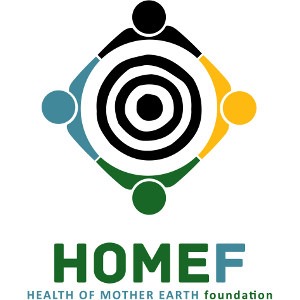A Non-Governmental Organisation, Health of Mother Earth Foundation (HOMEF) has urged community and political leaders to come up with a gender policy where men and women will be given equal opportunities to contribute to decision-making process.
This was part of the resolutions taken at the end of a Cycles of Reflection Meeting on “Responsibility Sharing” held on Tuesday in the community hall, Okoro-Utip, Ibeno Local Government Area of Akwa Ibom State.
One of the facilitators and staff of HOMEF, Dr Elsie Ifon noted that women should be given more serious roles and not mundane ones in the society.
Dr Ifon maintained that once the community leaders live beyond some stereotypes and assign right people to various positions or offices irrespective of gender, there would be remarkable progress and development in the community.
She noted that women face some barriers in accessing employment opportunities and elective political offices saying that in the next general elections, they can work towards having 50 Percent quota by advocating for favourable conditions now to achieve that.
She, however, advised the women to stop being cheerleaders to politicians only but should make deliberate efforts to empower themselves through education and skills to support one another to take up strategic roles in the society.
According to her, ” I believe that once the right people are assigned various positions of responsibility irrespective of gender there will be development and progress. All we want is who can do it. If more women are assigned more serious roles and not mundane roles, there will be significant impact.
“It is sad that women are only remembered when politicians need crowd when they need people to cheer them during campaigns, how about bringing out these women to empower them, to encourage them to take up serious roles, they will even bring out the best in them.
“We are telling our women; you don’t have to be cheerleaders, we want to enlighten them to take up serious roles and make themselves available to be brought to decision-making table.”
Also speaking, Jacob Iniodu of Kebetkache Women Development and Resource Centre regretted that women struggle a lot to fend for their families including their communities but were being sidelined when the time for sharing of some benefits.
He said when people claimed that women do not talk or make inputs during meetings in the communities, it was as a result of stigmatization, saying that when people are stigmatized for a long time, they tend to be acting in that way.
“When community go for protest, women will be at the forefront, championing it but when benefits from the protest come, they are being sidelined. It is good for responsibility to be shared equally and benefits shared equally. When people keep saying that women don’t talk when you go for meetings it’s actually stigmatisation, when women are stigmatized for a long time they tend to behave like that, we need to see how to tackle that stigmatization by learning how to bring them to the decision making table.” Iniodu said

























